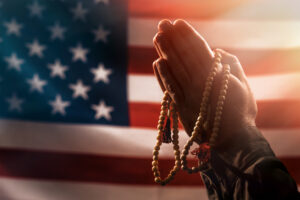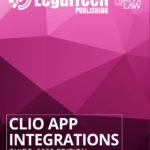
Could Law Schools Get Biblical On Affirmative Action?

Let thy will be done.
In Bakke, the Supreme Court ruled that righting historical wrongs is not a legitimate state interest that would justify affirmative action — which is what you’d expect from a country whose conditions of possibility were Native genocide and Black enslavement. It is hard to not see blood when you look at maps of… well any part of North America, case law citations, and our political elite.
googletag.cmd.push( function() { // Display ad. googletag.display( "div-id-for-top-300x250" ); });In the joint Harvard & UNC decision, the Justices 6 dealt a heavy blow to the policy in higher education. That said, it is technically still breathing. The Roberts opinion left some wiggle room for students to still talk about race and how it shaped who they are. This still leaves open a wealth of (well-studied) ground for applicants to discuss how race impacts them — they could even cite to this Harvard study showing that racial stressors can be trans-generational. Still, this isn’t a silver bullet. Groups like American First Legal et. al. are champing at the bit to spite sue over “violations” like schools factoring in an applicant’s socioeconomic status that aren’t ruled out in the opinion.
 Sponsored Security: The Stakes May Be Higher Than You Think We surveyed Above the Law’s readers on challenges facing smaller law firms. Join us to learn what we found. CLE credit available if you attend… From iManage and Above The Law
Sponsored Security: The Stakes May Be Higher Than You Think We surveyed Above the Law’s readers on challenges facing smaller law firms. Join us to learn what we found. CLE credit available if you attend… From iManage and Above The Law Knowing this, administrators have been figuring out what alternatives exist for helping to cultivate a racially diverse campus. In the process, an unexpected solution has popped up: Religion. From ABA Journal:
Lake, who is also an attorney with Steptoe & Johnson, thinks universities with religious affiliations may have a good argument to continue using race in admissions decisions.
“What if a religious organization had a sincerely held belief that racism is a sin in America related to slavery, and it is deeply committed to ending discrimination after the Civil War?” Lake asks. “I think this court has made clear it puts a lot of emphasis on religious freedom.”
googletag.cmd.push( function() { // Display ad. googletag.display( "div-id-for-middle-300x250" ); }); googletag.cmd.push( function() { // Display ad. googletag.display( "div-id-for-storycontent-440x100" ); }); googletag.cmd.push( function() { // Display ad. googletag.display( "div-id-for-in-story-youtube-1x1" ); });Even if Clarence and company won’t recognize righting historical wrongs as a legitimate state interest, it’s possible that they wouldn’t second-guess righting historical wrongs as a legitimate religious tenant and, from there, an expression of one’s faith. Say a school reads Proverbs 19:17 and decides to go all in on scholarships that benefit students from poorer socioeconomic backgrounds which — because of historical events like redlining, Black veterans being denied the GI Bill, predatory policing schemes that keep Black communities broke through ticketing — would disproportionately benefit Black applicants.
Unconstitutional proxy for race or First Amendment backed expression of faith?
Sponsored Sponsored This Early Adopter Found Success With Legal AI. Here’s How You Can, Too Hear how one company brought the power of artificial intelligence into its contracting workflow. From LexCheck and Above The Law
Sponsored This Early Adopter Found Success With Legal AI. Here’s How You Can, Too Hear how one company brought the power of artificial intelligence into its contracting workflow. From LexCheck and Above The Law  Sponsored The Digital Transformation Imperative Private funds’ in-house and external legal teams are stretched thin by growing legal demands. Firms need digital transformation to thrive. From Troy Pospisil, Ontra CEO
Sponsored The Digital Transformation Imperative Private funds’ in-house and external legal teams are stretched thin by growing legal demands. Firms need digital transformation to thrive. From Troy Pospisil, Ontra CEO  Sponsored Security: The Stakes May Be Higher Than You Think We surveyed Above the Law’s readers on challenges facing smaller law firms. Join us to learn what we found. CLE credit available if you attend… From iManage and Above The Law
Sponsored Security: The Stakes May Be Higher Than You Think We surveyed Above the Law’s readers on challenges facing smaller law firms. Join us to learn what we found. CLE credit available if you attend… From iManage and Above The Law  Sponsored This Early Adopter Found Success With Legal AI. Here’s How You Can, Too Hear how one company brought the power of artificial intelligence into its contracting workflow. From LexCheck and Above The Law
Sponsored This Early Adopter Found Success With Legal AI. Here’s How You Can, Too Hear how one company brought the power of artificial intelligence into its contracting workflow. From LexCheck and Above The Law Harvard Law might not be the best case to try this line of argument, but what about Princeton Seminary? In 2019 the school set aside $28 million dollars for slavery reparations. If they decided to zealously recruit Black applicants, it would be difficult for someone to prove that their actions aren’t in some meaningful way connected to their religious beliefs. And while America First Legal could deny it, it would be a tough jurisprudential chestnut for a Court that got caught praying with litigants before overturning Roe.
After the Princeton case carves out a religious exception to affirmative action on just as, if not stronger, ground than the existing military exception, the gloves come off for everyone else. It used to be the case that once a school starts associating itself with a religion a little too heavily it jeopardized its shot at state funding. That was until the Maine decision where the Court said it was a-ok for private religious schools to still receive state funding. Who’s then stopping Harvard from adopting a tongue-in-cheek non-denominational “religiosity” that zealously recruits Asians, Natives, Blacks, and anyone else you’d be surprised to see at a Simon & Garfunkel cover band show? The Court? Like they’d survive the optics of crushing a school merely wishing to do God’s will. We’ve seen them step all over traditional speedbumps like standing or paying attention to the actual facts in the 303 Creative and Bremerton cases respectively. It might be a little too late to change tracks on the “blindly deferring to religious interests” train at this point.
In New Admissions Cycle, Law Schools Trying To Avoid ‘Litigation Bait’ With Race-Neutral Plans [ABA Journal]
googletag.cmd.push( function() { // Display ad. googletag.display( "div-id-for-bottom-300x250" ); }); Chris Williams became a social media manager and assistant editor for Above the Law in June 2021. Prior to joining the staff, he moonlighted as a minor Memelord™ in the Facebook group Law School Memes for Edgy T14s. He endured Missouri long enough to graduate from Washington University in St. Louis School of Law. He is a former boatbuilder who cannot swim, a published author on critical race theory, philosophy, and humor, and has a love for cycling that occasionally annoys his peers. You can reach him by email at [email protected] and by tweet at @WritesForRent.
Chris Williams became a social media manager and assistant editor for Above the Law in June 2021. Prior to joining the staff, he moonlighted as a minor Memelord™ in the Facebook group Law School Memes for Edgy T14s. He endured Missouri long enough to graduate from Washington University in St. Louis School of Law. He is a former boatbuilder who cannot swim, a published author on critical race theory, philosophy, and humor, and has a love for cycling that occasionally annoys his peers. You can reach him by email at [email protected] and by tweet at @WritesForRent.
 Sponsored Now Live At The Non-Event: Your Guide To Clio App Integrations! We're pleased to present this new guide to the products that work well with Clio. (Clio itself has no involvement in this publication.) From Above The Law
Sponsored Now Live At The Non-Event: Your Guide To Clio App Integrations! We're pleased to present this new guide to the products that work well with Clio. (Clio itself has no involvement in this publication.) From Above The Law  Sponsored Take Your Firm’s Work To The Next Level With Neos Try Neos, the case management platform that will supercharge your firm's productivity. From Assembly Software and Above The Law Topics
Sponsored Take Your Firm’s Work To The Next Level With Neos Try Neos, the case management platform that will supercharge your firm's productivity. From Assembly Software and Above The Law Topics Affirmative Action, Law Schools, Racism, Religion
Introducing Jobbguru: Your Gateway to Career Success
The ultimate job platform is designed to connect job seekers with their dream career opportunities. Whether you're a recent graduate, a seasoned professional, or someone seeking a career change, Jobbguru provides you with the tools and resources to navigate the job market with ease.
Take the next step in your career with Jobbguru:
Don't let the perfect job opportunity pass you by. Join Jobbguru today and unlock a world of career possibilities. Start your journey towards professional success and discover your dream job with Jobbguru.
Originally posted on: https://abovethelaw.com/2023/07/could-law-schools-get-biblical-on-affirmative-action/